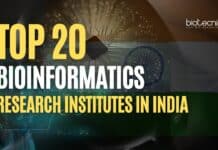DBT European Commission Horizon 2020 – Call for Proposals
Department of Biotechnology, Ministry of Science and Technology, Government of India and
The European Union (EU)
Cooperation on Research & Innovation in HORIZON 2020 Work Programme 2018-2020
Introduction:
The Department of Biotechnology (DBT), Ministry of Science and Technology, Government of India in collaboration with the European Commission will co- fund certain collaborative
projects under the EU’s Research and Innovation Framework Programme called HORIZON
2020. The Work Programme of year 2018-2020 was launched on 27 October 2017.
DBT, India participates in Horizon 2020 as an emerging economy, and funds Indian
investigators in collaboration projects. DBT and the European Commission (EC) have agreed upon a Co-Funding Mechanism (CFM) which was applied for the first time in the ‘Horizon 2020’ Work programmes 2016-2017.
The EU’s funding instrument for research and innovation, called ‘Horizon 2020’, is the largest multinational programme dedicated to research & innovation and it is “open to the world”. This means that researchers, universities, research organisations, companies and non-governmental organisations from across the globe can apply to participate in the activities of the Work Programme carried out mainly through calls for proposals. It has a total budget of €80 billion for the seven years of which the work programmes for the
remaining period 2018-2020 represent €30 billion.EU-INDIA CO-FUNDING MECHANISMS (CFM) FOR RESEARCH AND INNOVATION
COLLABORATION PROJECTS: HOW DOES IT WORK?
Where to find the call text?
The EC publishes all its call for proposals on the Horizon 2020 “Participant Portal“. Clickable
links are included for each call DBT has agreed for co-funding in the list detailed in Section
III).
How to prepare and submit a proposal:
A proposal needs to be prepared and submitted in line with the EC’s rules for participation and submission procedure. It is very important that the Indian applicants/participants are fully aware of all related administrative, legal and other aspect1.
The H2020 proposal (Part A and Part B) has to be submitted on-line by the project coordinator – usually this role is fulfilled by one of the European participants which fulfils all
administrative formalities on behalf of all, European and non-European/Indian participants.
Although an Indian applicant could theoretically be a call coordinator, it is recommended to
leave that function to one of the European participants which will considerably reduce the
administrative burden for the Indian participants.
The Indian applicants are required to submit the hard copy and soft copy of the proposal to DBT. The proposal submitted to DBT must include:
(1) Part A and Part B of the H2020 proposal
(2) Budget’ in the prescribed DBT format , identifying the planned expenditures (in Rupees) for all Indian partners. This part is very important to allow DBT for a proper evaluation of the proposal.
The complete proposal has to be submitted both electronically (e-mail) and by hard copy, by one Indian participant (“Indian project coordinator”) on behalf of all Indian participants (if there are more than one Indian participants).
A grant agreement is established and needs to be signed by all participants, including the Indian ones, enabling the project to start. In some cases, project participants can be required to sign an additional Consortium Agreement before the start of the project.
For proposals positively evaluated by both the EC and DBT, DBT provides a research grant to the Indian participant(s)
Eligibility of Indian participants to receive DBT funding:
Eligible Indian participants are researchers from recognised public/private funded academic
or research institutions, national R&D laboratories; R&D entities having recognition as a
Scientific and Industrial Research Organisation (SIRO) by the Department of Scientific and
Industrial Research (DSIR) under the Scheme on Recognition of Scientific and Industrial
Research Organisations (SIROs) of 1988.
The Indian private R&D institutions, Indian NGOs/VOs should be registered in DARPAN
Portal of NITI Aayog (http://ngodarpan.gov.in/) and registered to Government of India’s Public Finance Management System(PFMS)- https://pfms.nic.in/.
The Indian private R&D performing institutions, Indian NGOs/VOs should have experience of at least 3 years in scientific research, teaching, training, extension activities.
For more details click the link below
Editor’s Note: Are you looking to be notified of all of the various calls of proposals being announced? Do not know where to look for them? Have you heard of the Biotecnika Times Newsletter? Did you know that it is a free of cost subscription service that you can avail by signing up for it just the one time? For more such proposals, india proposals, calls of proposals, dbt india calls, dbt india proposals and more please follow Biotecnika.








































